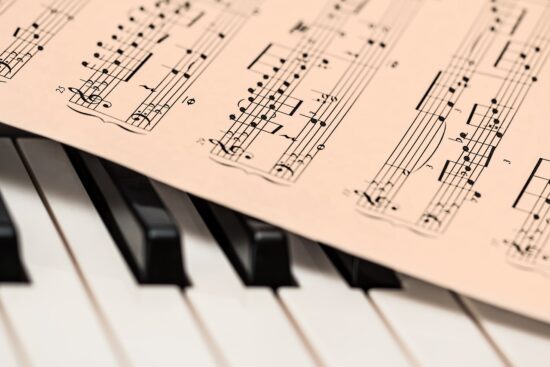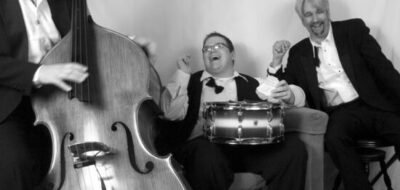Music is what binds cultures together. It encompasses several activities, such as singing, playing an instrument, or simply listening to a musical instrument or an album.
Nowadays, it isn’t easy to imagine a world without music as it is ingrained in every fiber of our being. Although everyone appreciates listening to wonderful music, few of us are what the world refers to as “musicians”—those who can play an instrument. This might be due to not having the chance to learn as a child, a lack of interest, or a lack of proper education. But learning music is something you can do at any stage of life.
So if you’ve been on the fence about giving learning music a shot, this article will surely nudge you in the right direction. Here, we’ll be enlisting a few good reasons for you to ditch your jitters and start learning music right away.
- It’s Good for the Memory
Learning music enhances memory. Since both the right and left sides of your brain are used when learning to play a musical instrument, it makes your brain work harder and improves memory. Scientists, for years, have even used music training for neuro-rehabilitation purposes to improve the brain’s functions. So this seems like a good reason to sign up for a music class.
While many different states in America are economical and provide easy access to a bunch of art institutions, Colorado seems to have gained itself a good spot. It is fairly striking and versatile when it comes to learning music. So if you, as an adult, want to give music a go, we have a suggestion. Adults of all ages can take music classes in Colorado at the Center for Musical Arts and make their dreams come true.
- It Builds Confidence
Have you ever wondered how accomplished musicians can play on stage in front of hundreds or even thousands of people without feeling nervous?
No matter who you are, getting up on stage to open yourself to an audience requires a lot of courage and confidence. Even talented musicians can experience performance anxiety from time to time. It may sound crazy, but it’s true. As you put yourself in potentially awkward performance situations while learning music, you eventually learn to handle your anxiety.
You don’t need a large audience if you want to build confidence. Look yourself in the mirror and perform. Or sing for your family. Once you are done, you will feel much better about yourself.
- It Is a Form of Self Expression
Music can help you manage your emotions better by allowing you to express yourself verbally. No wonder it’s a great stress reliever. When you attempt to compose your music, you are expressing your feelings through the instrument you are playing.
Have you seen John Mayer play his guitar? His work and performances are a great example of self-expression through music.
- It Helps You Focus
Researchers at Stanford University used musical compositions from the 1800s in their study. They discovered that “listening to and learning to play music helps engage the parts of the human brain that are associated with paying attention, making predictions, and updating the experience in memory.” Ironically, it doesn’t distract.
The researchers intended to look at how the human mind sorts out events. However, it was concluded that certain musical techniques used by music composers for two hundred years help the brain organize incoming information, which is baffling. Hence, it is believed that music impacts the brain’s processing. By listening to certain music genres, students can focus, stay organized and even learn!
- It Instils Discipline and Patience
Did you know learning to play an instrument is a great medium of teaching delayed gratification? Consider the example of a violin. The learning curve for the violin is huge. You have to learn how to hold the violin, the bow, and where to put your feet before you can even make a sound. When you learn to play an instrument, you must persevere through hours, days, months, and perhaps years of practice before you achieve a certain goal.
In other words, music teaches you that good things take time. But once you eventually achieve your goal by being patient, consistent, and resilient, the feeling is amazing!
- It Unleashes Creativity
Many individuals think music theory is unnecessary and frequently perceive it as a set of rigid restrictions that stifle our creativity and freedom of expression.
Well, that is wrong! Knowing the “rules” allows musicians to apply them as they see fit, giving them complete control and much more freedom when using their instrument. That said, you can choose the music theory rules that work best for you.
The theory will help you develop fresh concepts, unique melodies, new chord progressions, and the capacity to blend various scales. Then you can unleash your creativity and produce your masterpiece.
- It’s Fun
Of course, learning music is fun!
Even though learning to play the piano or a violin can be challenging, it can be fantastic when you reach that point where you can play the music you have always wanted to. Beginning with a sensation of accomplishment and playing for others, it lights you up. Everything about music becomes a pure delight.
- It Is Linked With Emotions and Memory
Several studies have found connections between music, memory, and emotions. All three of them are linked together!
Have you ever wondered why it is so much easier to remember a song’s lyrics than periodic table elements? Well, because your brain seeks out patterns to help you remember, analyze, and process information. It is the same reason producers typically have a hook in their songs—it acts as the song’s “earworm.”
The songs, tunes, and actions you perform while listening to music can stick in your memory effortlessly. It is truly amazing how our brain is capable of doing that.
Conclusion
These reasons must have compelled you to choose a musical instrument and start learning. While you are at it, remember that music is an art so profound that you must approach it with intensity and affection. Once you get the hang of the instrument you are learning to play, it will bring joy to your life and lift your spirits.
Now all you have to do is decide what instrument you want to play and enroll in a program. Learning music is going to change your life for sure!










Pingback: 8 Reasons You Should Start Learning Music - All About Songwriting